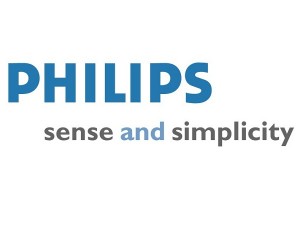Philips launches ‘+’ project to promote healthier lifestyles

But in the shadow of newly built skyscrapers, many families still live in third-world conditions, left behind by rapid urbanization that has widened the gap between the rich and the poor.
Even people who have benefited from the region’s improving economic climate are suffering, forced to work long hours in overcrowded cities to sustain lavish lifestyles that feature late night parties and junk food diets.
To help solve the health and social problems that these changing lifestyles can bring, Dutch multinational company Philips (official name: Koninklijke Philips Electronics) is turning to the only ones who have the answers: the people.
The company recently launched its Philips ‘+’ project, a campaign that aims to help change the lifestyles of billions of people in emerging economies for the better.
Officials say the ‘+’ project, launched here in the heart of Southeast Asia’s largest economy, is Philips’ way of asking its public: “tell us what your problems are, and we’ll help you solve it.”
The company says the project, which is a form of “crowd-sourcing,” aims to identify day-to-day challenges faced by people in emerging economies and asking those same people for solutions.
“Anyone passionate enough can participate in this. They can submit ideas through the ‘+’ project website and engage with us and other participants via social media,” says Rob Fletcher, head of Philips’ Indonesia office.
“Local participants can identify a local challenge. Those submissions can be discussed and judged, and ultimately, many of those will become real-life projects of Philips,” he adds. “We will take the lead, and we will bring these ideas to life.”
Architect Ridwan Kamil, a lecturer at Indonesia’s oldest technology college, the Bandung Institute of Technology, says Jakarta, like many Southeast Asian cities, is currently enjoying an economic boom that, unfortunately, cannot be supported by the poor infrastructure currently in place.
“Europe was the past, America is the present, but Asia is the future. Of the 27 new megacities in the world, 18 will be in Asia. But partly due to a lack of political will, many cities in Asia have too many buildings and roads but too little space,” Kamil says.
He says many metropolitan cities in the region are “pushing too much toward economic growth and neglecting social equity and the ecology.”
In markets like the Philippines, people tend to leave their countryside homes to look for higher-paying jobs in already crowded cities like Manila and Cebu.
By year 2020, Kamil cites that as much as 60 percent of people in the region will have migrated to metropolitan areas.
Many Asians, he adds, also have a preference for horizontal land development to accommodate individual homes with their own backyards and garages, which takes space that could have been used for more productive purposes.
The result, he says, is a poor quality of life for most households, despite their rising incomes.
He says what many city dwellers have forgotten is that “it’s possible to produce happiness without excessive consumption. From a city point of view, space is the expression of society. If space is messed up, it reflects in the emotions and quality of life.”
Philips’ Fletcher says the ‘+’ project aims to garner new ideas and solutions from the public on how to solve modern health and well-being challenges across the archipelago.
“For Philips, the project is about taking the lead in addressing key health and well-being challenges in modern day Indonesia,”
Fletcher says, adding that if successful, the project would be duplicated across Asia Pacific and eventually, the world.
The ‘+’ project builds on the funding of a recent Philips health and well-being index survey – a comprehensive analysis of responses from over 31,000 people across 23 countries.
The research showed people’s levels of satisfaction on 17 different areas, including physical health, their careers and communities, among others.
One of the findings showed that people from Taiwan, Malaysia and the Philippines are the most driven to work long hours to make ends meet. Most are also forced to contend with tough transportation issues contributing to late nights and early mornings, leading to sleep deprivation.
Philips says chosen ideas will be given grants of $50,000 each, to be spent on project implementation. These projects should focus on three major themes, namely access to healthcare, promotion of healthier lifestyles and making cities more liveable.
Aside from the sizeable grants, winners will be given access to Philips’ suite of technologies to help put their plans into motion.
“It is only by listening to concerns and ideas from people and engaging other stakeholders can we truly understand and provide meaningful solutions to our needs,” Fletcher says.
“This is why this process of ’crowd-sourcing’ new ideas in pair with our unique capabilities in healthcare, lighting and consumer lifestyle is crucial to make a real difference to their lives,” he adds.
